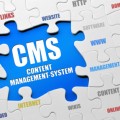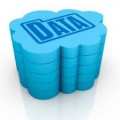Whatever you’re passionate about, you can probably turn that passion into an online business. You know you are going to need a website, but how do you get one up and running? What if you don’t know or don’t have the time to learn all of that coding? This is where a CMS comes in.
A content management system (CMS) is a software system where a website can be published without the knowledge of PHP, HTML, CSS or much of any coding at all. And apparently, from a SEO perspective, Google loves content management systems because of the solid coding structure.
A CMS website gives the website owner control of the content through an admin panel on the website itself. Managing the content using a CMS, easily allows the user to publish documents, pictures, movies or data to the website and integrate that content into the design without a developer.
The three largest and most popular systems are Joomal, Drupral and WordPress. According to Forbes.com, WordPress CMS is the creme de la creme of content management systems with it being used on “… one of every 6 websites on the Internet, nearly 60 million in all, with 100,000 more popping up each day.” It’s hard to ignore that type of statistics when trying to choose the right CMS platform.
Take Tony Bradshaw as an example – a car enthusiast and owner of the Spy Engine – an auto parts search website – helping people find the best deals for catalytic converters and other popular vehicle parts. “For me, the wordpress platform has no equal. In particular the power it gives (back) to business owners so that we are less dependent on programmers and web developers for our existence.”
Before you make the decision if a CMS is right for your website, let’s take second to have a look at some of the pros and cons associated with them:
The Pros To Using A CMS For Your Website
Provides great content security control. The website administrator can decide which members of the site are allowed to contribute content and if they can publish it on their own without approval.
Allows for many simple edits without calling the website designer for implementation.
Easy to manage a large number of pages and coordinate a team.
The admin interface is easy enough for a novice and complex enough for more advanced users without having to go into the backend of the CMS.
Easy to create blog posts, links, add media and social media connections, and plenty of other functionalities.
Doesn’t require coding knowledge to manage content.
Changing the look of your website will not affect your content, saving your search engine rankings.
Content management systems often have solutions to common problems coded into them.
And plenty, plenty more.
The Cons To Using A CMS For Your Website
Updating the software is crucial for security. Though most of the CMS systems stay on top of security issues and fix them with updates, it is up to the site owner to implement the upgrade.
Even though the administrative interface is easy enough to learn and use, like anything else, there may be a short learning period get yourself familiarized with the new changes.
Site load time can become an issue since a visitor’s browser is not only loading content from the page, but it is also plugging multiple items from the database, where your content is stored.
As you can see, the pros outweigh the cons by a mile.
Benefits For Small Business Owners
This list can be quite long, but let’s go over just a few:
Easily navigable site for your visitors to enjoy
Once you get the basics down, you don’t need to call the developer for every little change
Easy to grow the site with your business
With plug ins and different themes, you can easily create slideshows, membership sites or e commerce solutions without know much, if any, code

